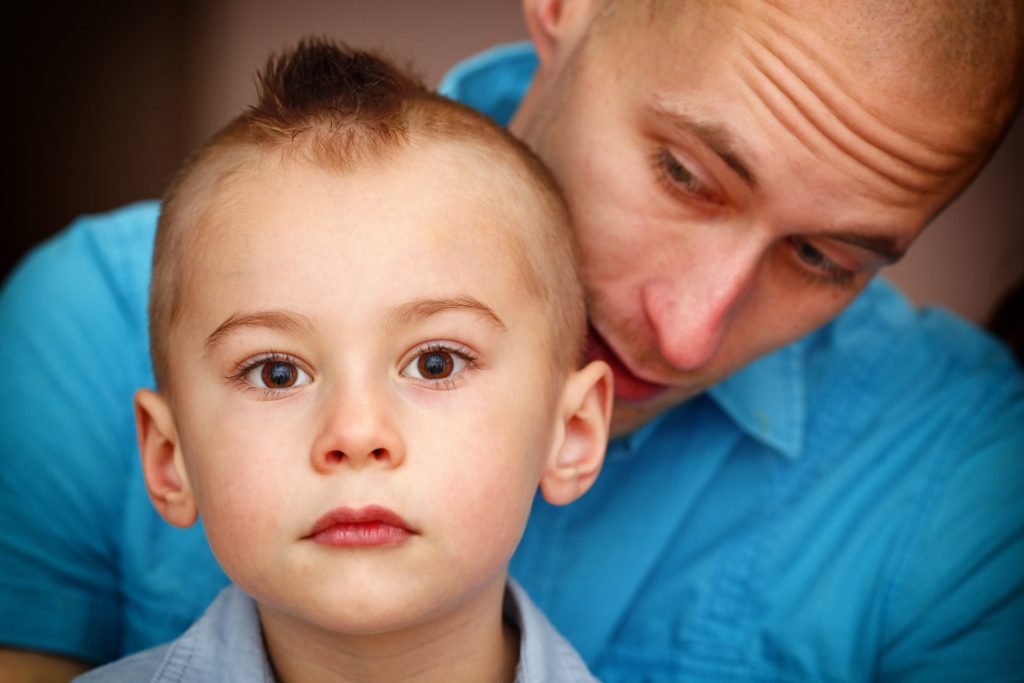Things You Should Never Tell Your Child

Every parent wants their kids to be successful and they try to convey and teach them attitude that they believe will help their child to achieve his/her goals. But one important thing most of us tend to forget that our kids belong to a different generation, i.e. in different time zone, social structure, economic condition, technological advancement and hence what proved successful in our lives possibly may prove counterproductive in their life.
Hence it’s been found in many recent surveys and studies many things that today’s parents teach may produce good results in short term but even eventually, this leads to burnout and we get — less success.
Today Counsellor Shivani Misri Sadhoo shares a few of the possible damaging things many of us are currently teaching our children about success, and what to teach them instead.
1. Don’t Constantly Remind Your Child to focus on the Future Goals.
Set target to get admission in IIT, Medical, best Delhi University college and best course etc. are some of the most common advises that we hear most Indian parents generally give their kids. It’s true that every parent desires good academic and career progress for their child’s so they can settle well and live a happy and content life.
A mind that is constantly trying to focus on the future — from getting good grades to applying in good colleges — will be prone to greater anxiety and fear. While a little bit of stress can serve as a motivator, long-term chronic stress impairs our health as well as our intellectual faculties, such as attention and memory. As a consequence, focusing too much on the future can actually impair our performance.
Children do better and feel happier if they are learning how to stay in the present moment. And when people feel happy, they’re able to learn faster, think more creatively, and problem-solve more easily. Studies even suggest that happiness makes you 12% more productive. Positive emotions also make you more resilient to stress — helping you to overcome challenges and setbacks more quickly so that you can get back on track.
It’s certainly good for children to have goals they’re working towards. But instead of always encouraging them to focus on what’s next on their to-do list, help them stay focused on the task or conversation at hand.
Hence instead pushing or constantly reminding the child to focus on the future and keep an eye on goals, what we should be telling them is Live (or work) in the moment.
2. Don’t tell or Show Your Child that Stress is inevitable and we need to keep pushing ourselves.
Generally, parents don’t directly tell their child that stress is inevitable and we need to keep pushing ourselves, rather in today‘s age, a large population of parents display this message through their actions and conversations.
Those who are overburdened in offices, live in a constant state of overdrive, burn themselves out and become terrible when they miss a professional goal and at night becomes so wired that they use hard drinks or sleep medication to calm them down.
Children in such environment tend to develop feelings of anxiety at a young and they start to worry too much about grades and feel pressurised to do better in school or in competitive exams. Most distressingly, we’re even witnessing stress-induced suicides in children.
All in all, this is not a good lifestyle model for children. It’s no surprise that research shows that children whose parents are dealing with burnout at work are more likely to experience burnout at school. What we should be telling them instead: Learn to chill out.
It’s recommended that parents should consider teaching their children the skills they will need to be more resilient in the face of stressful events. While we can’t change the work and life demands that we face at work and in school, we can use techniques such as meditation, yoga and mindful breathing to better deal with the pressures we face. These tools help children learn to tap into their parasympathetic “rest and digest” nervous system (as opposed to the “fight or flight” stress response).
3. Don’t tell your child it’s a dog-eat-dog world, rather teach them to show compassion
Research shows that from childhood onward, our social connections are the most important predictor of health, happiness, and even longevity. Having positive relationships with other people is essential for our well-being, which in turn influences our intellectual abilities and ultimate success.
Moreover, likability is also one of the strongest predictors of success. According to experts, when you express compassion to those around you and create supportive relationships instead of remaining focused on yourself, you will actually be more successful in the long term — as long as you don’t let yourself be taken advantage of.
Children are naturally compassionate and kind. But at the same time, many young people are also becoming increasingly self-involved. So it’s important to encourage children’s natural instincts to care about other people’s feelings and learn to put themselves in other people’s shoes and cultivate empathy.
It’s true that it’s a tough world out there. It would be a lot less tough if we all emphasize on less cut-throat competition and put a higher premium on learning to get along well on the journey that’s called life.
- Does Living with In-Laws Affect Your Marriage? 5 Ways to Deal - July 23, 2024
- Is Your Job Destroying Your Marriage? 7 Signs to Look for - July 15, 2024
- Do you Know How to Handle a Manipulator Effectively? - July 11, 2024